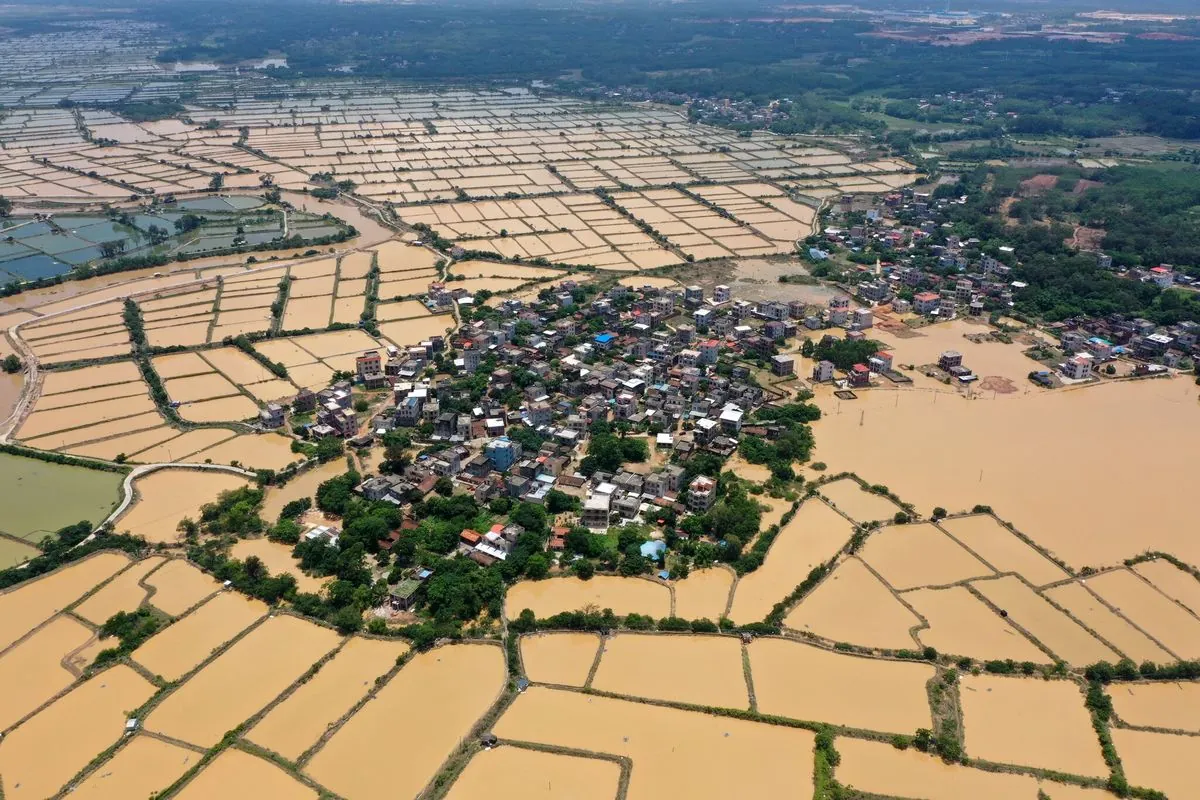China's July Natural Disasters Cause Massive Economic Losses
Extreme rainfall and flooding in China led to nearly doubled economic losses in July 2024 compared to the previous year. The disasters affected over 26 million people, causing widespread damage to homes and crops.

In July 2024, China experienced severe natural disasters, primarily due to extreme rainfall and flooding, resulting in substantial economic losses. According to the Ministry of Emergency Management, the economic impact reached 76.9 billion yuan ($10.1 billion), nearly doubling the figures from July 2023. This marked the highest July losses since 2022.
The devastating events affected approximately 26.4 million people across China, with 328 individuals reported dead or missing. The disasters necessitated the relocation of 1.1 million people, while 12,000 houses collapsed and 157,000 more sustained damage. Additionally, 2.42 million hectares of cropland were impacted.

Heavy rains and floods accounted for 88% of the total economic losses. Record-breaking precipitation was recorded at 33 weather stations in Henan, Hunan, and Shandong provinces. The situation was exacerbated by swollen major rivers, including the Yellow River and Huai River, which were slow to recede after flooding episodes.
Henan province, a crucial commercial crop production area, saw over 1.13 million hectares affected, with some harvests lost due to waterlogged fields. In the south, Typhoon Gaemi had a significant impact on Hunan province. Furthermore, thunderstorms, strong winds, and hail caused damage to crops and greenhouses in Inner Mongolia and Xinjiang.
"The extreme rainfall and flooding in July 2024 have led to unprecedented challenges for our disaster response efforts. We are working tirelessly to provide relief and support to affected communities."
These events highlight the increasing vulnerability of China to climate-related disasters. The country's vast geography, from the North China Plain to the Sichuan Basin, faces diverse challenges in managing extreme weather events. The Ministry of Emergency Management, established in 2018, continues to play a crucial role in coordinating disaster response efforts.
As China grapples with these natural disasters, the impact on its agricultural sector raises concerns about food security. The country's crop production is vital not only domestically but also for global food supplies. The government's ongoing investments in flood control projects, such as the Three Gorges Dam, and advanced weather forecasting systems demonstrate a proactive approach to mitigating future risks.
The recent events underscore the urgent need for continued adaptation and resilience-building measures in the face of changing climate patterns. As extreme weather events become more frequent and intense, China's long-standing history of flood control efforts will be put to the test, requiring innovative solutions to protect its population and economy.


































